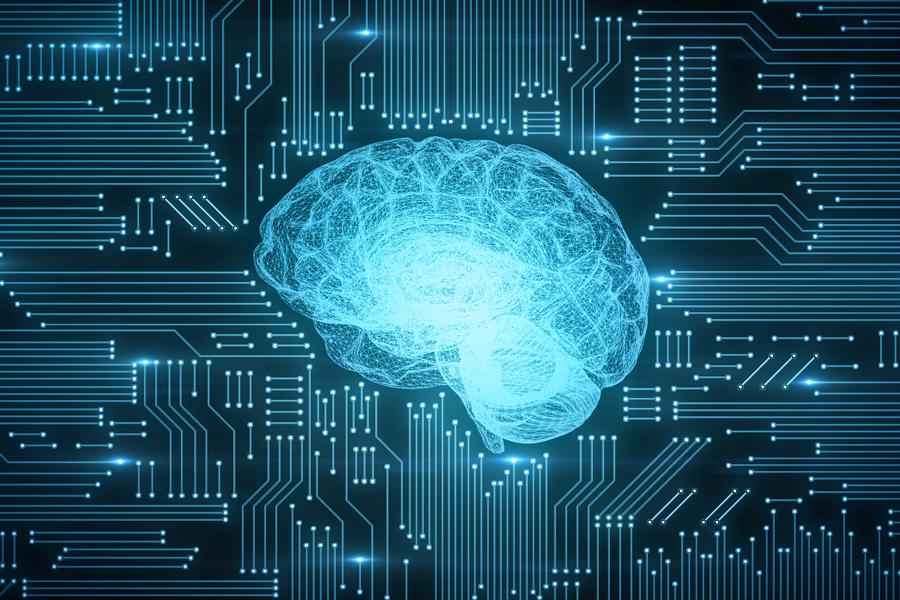Artificial Intelligence & Robot Lawyers?

A multi-national law firm recently announced that its bankruptcy unit has acquired an “artificial-intelligence attorney” or “AI lawyer.” The “robot” is identified as ROSS. ROSS reportedly will be used by the law firm’s bankruptcy division and is, in essence, a highly advanced research tool. This news has catapulted to the forefront the debate over the impact technology may have on the legal profession.
A Twitter user recently contacted me, via our InternetCrime.com Twitter page: @InternetCrime. He expressed concern about how the future of the legal profession may be negatively impacted by advanced technology. Of specific concern are the changing roles that attorneys may find themselves in and whether many attorneys will come to be replaced by artificial intelligence. This is a significant question and this post will explore the issue.
Slow to Adopt
Traditionally, the legal profession is relatively slow to incorporate technological advances into the system. I recall being in my first year of law school and learning that we had to use law books (actual books) from the law library to complete our research projects. Although online databases of case law and statutes had been available, “online” research was still a relative novelty and we were informed that not all firms or employers would have subscriptions or plans. As a result, legal research involved scouring the multi-floor law library to locate and cross-reference cases from a variety of jurisdictions, in books that may not have been cracked in decades. Often, the search to simply locate the books for a project was the most stressful aspect of an assignment.
Following law school, I recall some attorneys and judges resisting the adoption of new technology, sometimes aggressively. For instance, some resisted the use of cell phones to communicate with clients, electronic calendaring and even e-mail. Perhaps they failed to recognize the value or possibilities. Or, they simply had a routine that they followed and desired to continue without change. (In fairness, I still carry a paper calendar with me as a back up to my online calendar). Ultimately, such resistance to basic technological advances has proven futile for most.
Today, most attorneys utilize the most common forms of technology in their practice. Online research has essentially replaced the dusty old law books. However, law books do remain in many firms and judge’s chambers for aesthetic effect (they also appear in attorney ads and behind the talking heads in the media).
Despite increased adoption, even today it is not uncommon to be advised that a certain court, or clerk of court, will not accept any electronic communication or filing. Instead, many courts still require the use of a fax machine to transmit documents.
Advances in Technology: Threat or Opportunity?
At first glance, it appears that there are two possible consequences to the legal profession that can result from the rapid technological advances in artificial intelligence. Either artificial intelligence is viewed as a threat to the profession that will replace many positions, including the lawyers and their staff, or, artificial intelligence will never materialize into an effective resource for the profession given the complexities involved in the practice of law.
History dictates that a third path is more likely. As with the adoption of other technologies into the profession, the goal should be to provide better service to clients. Whether it is an improvement in the client experience, or an increase in the odds of achieving a desired legal result, the client’s needs should be the prime consideration in the adoption of any technology. As such, viewing new technology as a tool and opportunity to improve a practice is more productive than viewing it as a threat.
Law firms that experiment with new technology and incorporate tools that improve their practice will have a distinct advantage over firms that ignore the available technological advances.
The Practice of Law is more of an Art than a Science
Law is not math. There is no universal calculus that can be employed when it comes to law because, ultimately, the practice of law involves human beings. Yes, there is case law and precedent to be analyzed and statutes to be reviewed, however, the practice of law and even legal research involves a great deal of subjective interpretation of that “data.” For instance, case law and statutes can be interpreted in multiple ways, many of which may be reasonable. Facts are almost always in dispute, to say the least, and the value and weight of evidence is generally open to debate.
The human element in any legal matter cannot be underestimated. Whether it is a judge, a jury, an adverse party, an adjuster or a client who you are trying to inform and persuade, the strategy you employ is generally not based upon a detailed calculus or formula. Further, the strategy of an attorney may rapidly change with even the slightest bit of feedback, even in the form of body language (a smile, a rock back in a chair, a head shake or a head nod). These elements play a vital role in most legal matters and involve emotional intelligence, not data, formulas or legal research.
Attorney & Counselor at Law
Your client is not a robot (not yet), your client’s family is not a math problem and the judge and jury are not calculators. The practice of law involves people and as a result, a personal approach is what is required to be effective. Attorneys are called “counselors at law” and for good reason. Most lawyers recall their first few cases following graduation from law school. All of the books, studying, hypothetical argumentation and class discussion did not seem to readily prepare them for the reality of a client, an actual person, with a real legal problem.
Those with little experience in the legal arena are often struck by the raw emotion that is involved in a legal dispute. Whether it is a client seeking a divorce, a wrongfully terminated employee, a person accused of a crime, or a family seeking justice for the wrongful death of a loved one, the emotions are powerful and real. The most pressing questions and concerns are surprisingly often not even of a legal nature.
Until artificial intelligence can meaningfully shake a new client’s hand, or mediate a heated dispute between two infuriated neighbors, or console a grieving family who is looking for justice, or gently advise a client and his family that a treatment program is in his best interest to address an addiction issue, humans will remain the primary participants in the legal profession. Technology will most certainly continue to change the practice of law and assist lawyers in better serving their clients. However, attorneys and their legal staff will most certainly remain the crucial link between the law firm, the clients, the courts and the opposing parties.





